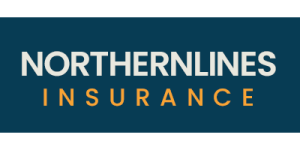
Compare Your Insurance
Quotes Online Instantly For
Free
CAR INSURANCE
Overview
What's covered
Ways to save
FAQ
Overview
Overview of car insurance
Car insurance in the United States is a type of coverage that protects drivers financially in case of accidents or other incidents involving their vehicles. Each state has its own specific requirements for minimum coverage levels, but most states require drivers to have liability insurance, which covers damages to other people’s property or injuries they sustain in a car accident for which they are at fault. In addition to liability insurance, drivers can also purchase additional types of coverage, such as collision coverage, which covers damages to their own vehicle in the event of an accident, or comprehensive coverage, which covers non-accident-related damages such as theft, vandalism, or natural disasters.
In addition to liability insurance, drivers can also purchase additional types of coverage, such as collision coverage, which covers damages to their own vehicle in the event of an accident, or comprehensive coverage, which covers non-accident-related damages such as theft, vandalism, or natural disasters. Car insurance premiums are determined based on a number of factors, including the driver’s age, driving history, location, and the make and model of the vehicle. Drivers with a
history of accidents or traffic violations will generally pay higher premiums than those with a clean driving record.
There are many car insurance companies operating in the United States, both large national providers and smaller regional or local providers. Drivers can compare quotes from different companies to find the best rates and coverage for their needs. It’s important for drivers to have adequate car insurance coverage to protect themselves and others on the road. Driving without insurance is illegal in most states and can result in significant fines, license suspension, or even jail time.
What's covered
What is covered by this car insurance?
The coverage provided by car insurance policies can vary depending on the specific policy and insurer. However, some common types of coverage that may be included in a car insurance policy are:
Liability Coverage:
This coverage pays for damages or injuries you cause to others in an accident. It includes bodily injury liability and property damage liability.
Collision Coverage:
This coverage pays for damages to your own vehicle if it is involved in a collision with another vehicle or object.
Comprehensive Coverage:
This coverage pays for damages to your own vehicle that result from non-collision events, such as theft, vandalism, or natural disasters.
Personal Injury Protection (PIP) Coverage:
This coverage pays for medical expenses and other related expenses for you and your passengers if you are injured in an accident, regardless of who is at fault.
Uninsured/Underinsured Motorist Coverage:
This coverage protects you if you are involved in an accident with a driver who does not have insurance or has insufficient insurance to cover the damages.
Ways to save
What are the ways to save on car insurance?
There are several ways to save on car insurance. Here are some common strategies:
Compare quotes:
Shop around and get quotes from multiple insurance companies to find the best rates and coverage for your needs.
Raise your deductible:
Increasing your deductible, or the amount you pay out of pocket before insurance kicks in, can lower your monthly premiums.
Bundle policies:
Many insurance companies offer discounts for bundling multiple policies, such as car and home insurance.
Maintain a good driving record:
Avoiding accidents and traffic violations can help keep your insurance rates low.
Drive a safe car:
Cars with good safety ratings and features may qualify for lower insurance rates.
Take advantage of discounts:
Many insurers offer discounts for things like safe driving, good grades, and completing defensive driving courses.
Consider usage-based insurance:
Some insurers offer programs that track your driving habits and adjust your rates based on your actual driving behavior.
Review your coverage regularly:
Make sure you have the right amount of coverage for your needs and consider adjusting your coverage as your circumstances change. Remember, while it’s important to save money on car insurance, it’s also crucial to have adequate coverage to protect yourself and others on the road.
FAQ

